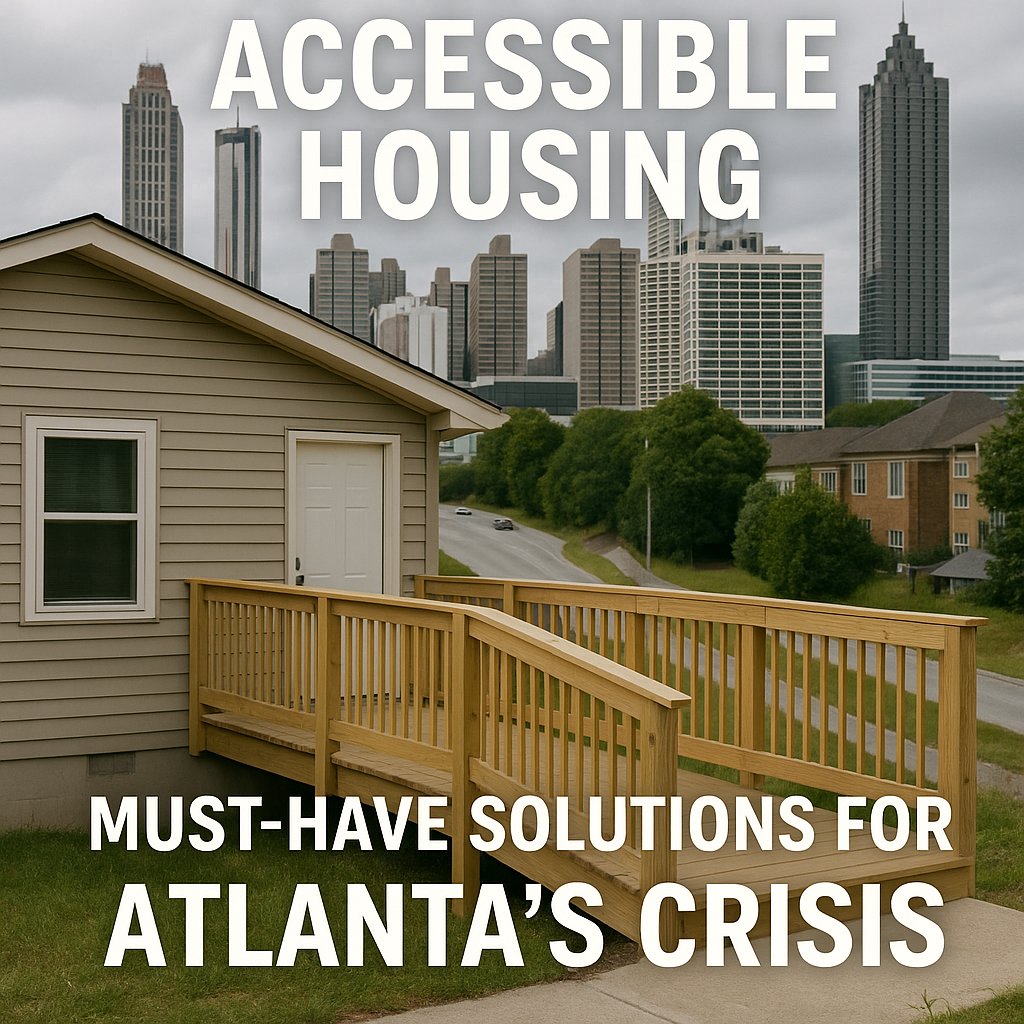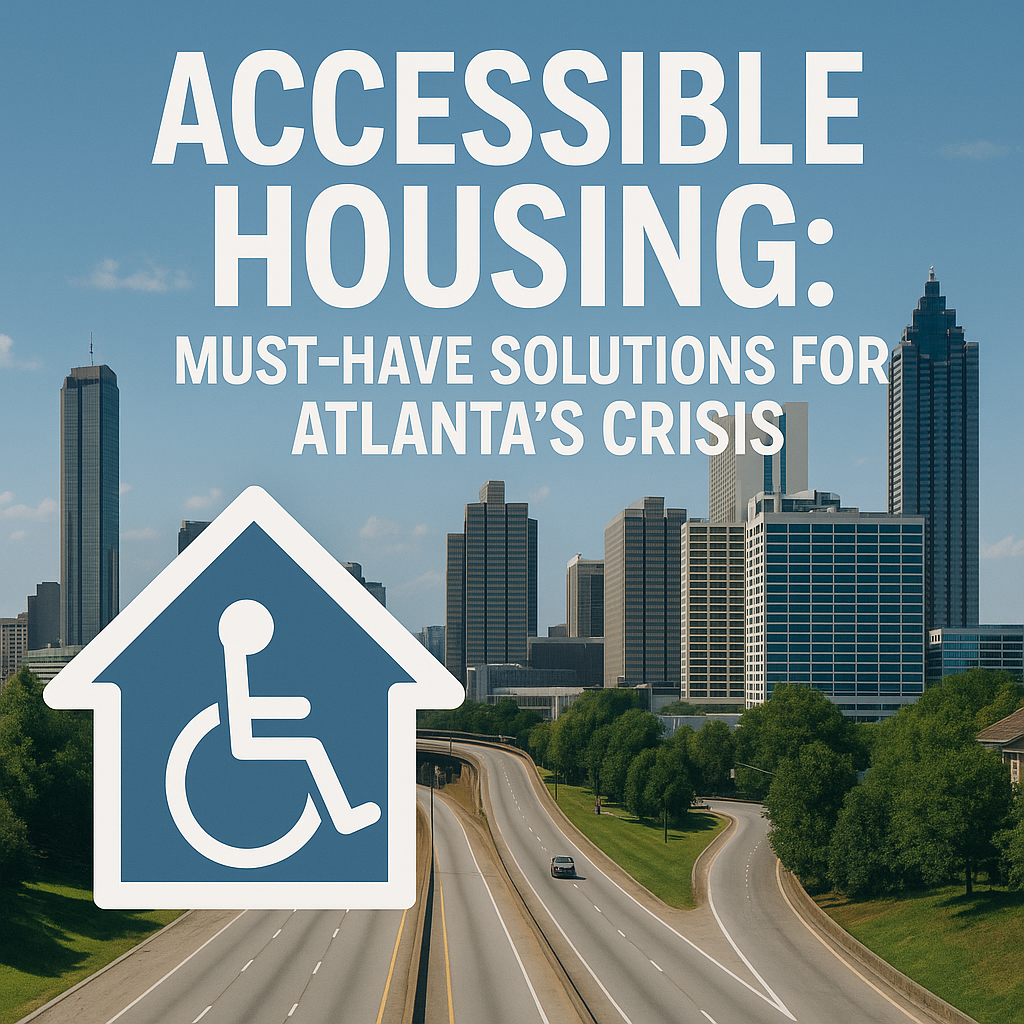Accessible Housing: Must-Have Solutions for Atlanta’s Crisis
Accessible Housing: Must-Have Solutions for Atlanta’s Crisis
Accessible housing is at the forefront of discussions regarding the severe housing crisis impacting Atlanta. As the city undergoes rapid growth, the demand for affordable housing is skyrocketing, leaving many residents struggling to find suitable living arrangements. This article aims to synthesize diverse viewpoints from reputable news sources to present a balanced perspective on the challenges and potential solutions associated with accessible housing in Atlanta.
The Current Crisis: A Closer Look

Atlanta’s housing landscape is undeniably complex. With increasing population density, gentrification, and a rise in living costs, many long-time residents are facing displacement. According to The Atlanta Voice, the city is experiencing one of the worst affordable housing crises in its history. Data shows that average rent prices have surged by nearly 30% over the last decade, outpacing wage growth, which has stagnated for many working-class families.
In contrast, the Atlanta Daily World highlights the socio-economic factors contributing to this crisis. Neighborhoods that were once vibrant and affordable have been transformed by new developments aimed at more affluent residents. This trend is leading to a significant loss of cultural identity in many communities, exacerbating the sense of urgency for finding viable solutions to the housing issue.
Factors Contributing to the Crisis
Several interlinked factors contribute to the housing dilemma in Atlanta:
– Rapid Urbanization: The influx of new residents, particularly young professionals, has intensified competition for available housing.
– Rising Construction Costs: Increased costs for building materials and labor have limited developers’ ability to produce affordable housing units.
– Zoning Regulations: Outdated zoning laws hinder the development of multifamily units that could ease the crisis.
– Displacement: Long-standing communities are at risk as property values increase, turning once-affordable neighborhoods into hotspots for high-income earners.
Exploring Potential Solutions
To tackle the accessible housing crisis effectively, various stakeholders, including government, non-profits, and community members, are advocating for a multifaceted approach.
Key Strategies in Focus
1. Increased Funding and Incentives for Affordable Housing:
– Advocates argue that local government should boost funding for affordable housing projects. This could involve tax credits for developers willing to include affordable units in their new projects.
2. Adaptive Reuse of Properties:
– Repurposing vacant buildings, such as old schools and warehouses, into livable units can rapidly increase the available housing stock. The Atlanta Daily World cites several successful examples that could serve as a model for future developments.
3. Community Land Trusts:
– These non-profit organizations are designed to acquire and hold land for the benefit of the community. By creating permanently affordable housing options, they can help mitigate the effects of market fluctuations.
4. Policy Reforms:
– Adjusting zoning laws to encourage higher density living could open the door for more mixed-income developments. This would not only address the shortage but also promote diversity within neighborhoods.
5. Public-Private Partnerships:
– Collaboration between the government and private sector can yield innovative solutions to financing and developing new affordable housing units. The Atlanta Voice points out that such partnerships have successfully led to projects in other cities that Atlanta could learn from.
The Need for Inclusive Dialogue
While solutions abound, it is crucial that these discussions include the voices of those most affected by the crisis. Marginalized communities often have unique insights and needs that must be considered in any proposed solutions. Ensuring that these communities are part of the dialogue can lead to more effective and equitable outcomes.
Conclusion
Accessible housing is a pressing issue that requires immediate attention and a multifaceted solution. With diverse perspectives highlighting different aspects of the crisis, it becomes evident that no single approach will suffice. As Atlanta continues to grow and evolve, so too must its strategies for ensuring that all residents have access to safe, affordable housing that meets their needs. Engaging in informed discussions and exploring innovative, community-focused strategies will be essential to tackling this complex challenge effectively.















